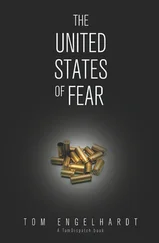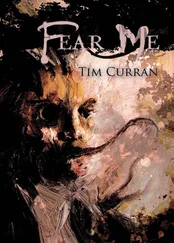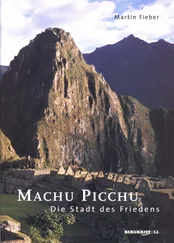I was berthed, with a few clothes I had tied up in a tablecloth, on a small, filthy blanket in the back of a wagon. As we pulled away and the farm slowly faded from my view I experienced a slight, fleeting pang of doubt, which disappeared when I felt a tap on my shoulder and turned to see another young circus hand offering me some peanuts from a bag. I never looked back again.
The work was not all that different from my duties at the farm, at least at first, but there was the immense advantage of a regular change in scenery. And stimulating company, with interesting stories to tell. Everyone did a number of jobs in the circus, even the performers, and we rarely had a moment of unoccupied time. Yet there was a feeling of freedom.
We proceeded through Pittsburgh, through Ohio, up to Cleveland, followed the lake’s edge to Erie, then to Buffalo. We saw Rochester and Syracuse and Albany, by way of small towns like Auburn and Seneca Falls. Rivers, taverns, brown grass tramped down. Fires and the night and the morning’s ashes. We set up our tents and wagons in fields near Pittsfield and Burlington and Portsmouth, and down again through Wilmington and across to Harrisburg. If any member of my family came to any of our performances in that area of Pennsylvania I would not know. By that time I had changed my name from MacDougall to Douglass, partly in order to save them embarrassment and also partly to betoken my new identity — I hesitate to say my “rebirth.”
But in a sense that is what it was. One stepped through a portal into an alternate world when one took up with the circus, or any traveling band. The traveling world is parallel to the world of those rooted to one spot; it is the other end of the telescope, so to speak. Things that are taken by most people to have solidity and permanence become relative and subject to time. The church spire, the town hall or courthouse that watches over your days and is an ever-fixed mark to the merchant or the laborer, is to the traveling man only one among many such. The cherished touchstones of your daily life are to him a set of fresh opportunities for passing adventure, a source of profit to be extracted quickly, like gold from a small mountain, before moving on to the next El Dorado.
“Do you remember the set-to in the saloon in Pittsburgh? Where Halsey nearly got his eye put out by the drayman?”
“That was in Cincinnati. I know because I spent two nights with the redhead Jane.”
“You may think she was a redhead but I saw her black roots!”
“I say it was Pittsburgh!”
“Nothing compares with the brawl in Ithaca.”
“This we can agree upon.”
. . and so forth.
My three and a half years with Kimball’s Circus were my Harvard University. I learned geography, history, economics, and no small measure of practical philosophy. I learned the ways of varied men and women, took informal seminars in music, physics, and animal husbandry. I acquired books in towns and read as much as time allowed. I was able to keep only a very few, as my berth in the caravan was tight indeed. I learned to coexist with others while asking nothing of them except that they perform their duties and allow me to perform mine.
And I learned the banjo from Corbett, or Brother Sam as he called himself when behind the burnt cork mask. He was in no way the equal of Sweeney in either virtuosity or personality, but he was someone to study. He taught me the secrets of the masquerade, the songs, the best proportion of grease to burnt cork. I also learned to manipulate the bones satisfactorily. He was the banjo player, and there could not happily be two in a troupe — and anyway there was only one banjo — so I learned the clackety-clacks, as one of my fellow riggers called them.
One of the great benefits of traveling was the opportunity to hear this or that local musician at his instrument, especially the Colored players. Set up in a boggy field north of Camden or west of Easton, and the sound of a fiddle playing an unusual variation on some familiar jig or reel would carry across half a mile from a porch or a stillhouse. If time allowed, one would visit with the fiddler, or the banjo player, exchange a tune or three, add to one’s store of technique and repertoire. I was always struck by how welcoming the Negroes were, how willing to share their knowledge with us. They had no reason to be so. They certainly received no share of the profit we gained from their generosity.
Corbett was a genial, expansive soul, an adequate performer, and a fine raconteur up to the midpoint of whatever bottle he was emptying. But he was a hopeless drunkard, and somewhere around Hagerstown he was jettisoned, with regrets, in favor of one John Mulligan, about whom I must now speak.
Mulligan was ten years older than myself and had clearly served his own apprenticeship among the Colored players. He was an absolutely remarkable banjo player. Corbett had a limited repertoire, which he delivered competently, and with which he was content. But Mulligan was a fire-eater; his appetite for new songs, technical refinement, practice, was huge, as was his appetite for food. He was not nearly so girthy then as he later allowed himself to become. Mulligan was a large man in all senses, and deadly serious about playing the banjo. He had his eyes set on a musical ideal.
My first encounter with him was not promising. Although I was well seasoned after three years with Kimball’s, I was not yet eighteen years of age, and when I suggested, shortly after his arrival, that the two of us rehearse a few songs together he merely grunted.
“Why don’t you get me some water, boy,” he said. “I am putting my banjer in tune.” He was sitting on a stool in one of the tents, like a giant toad on a small mushroom.
“Why don’t you get your own water,” I said. “The exercise will do you some good.”
This got his attention, and he stopped tuning and regarded me, for a moment, with a fierce expression, which almost immediately gave way to laughter — at my cheekiness, I suppose. I must have been a very unthreatening sight, myself, skinny as I was then, and standing with my bones at the ready.
“Let’s see what you can do, then,” he said, and without preamble launched headlong into “Buckley’s Hornpipe.” I was on top of it in no time and followed the tune’s tricky switchbacks and crooked repetitions with ease. On the third time through I executed a few dance steps as well, while playing, and I saw Mulligan note them with surprise and approval.
When we had finished he avoided my eyes, but I saw him making some private adjustments in his assessment of me. Yet his first words were, “Now get me that water.”
My response was a familiar obscenity, and I left him to find his own water. He never made the request again. And we were thenceforth on a much friendlier footing.
I was in earnest about performing, by that time. The homelier aspects of the circus life — the animals, the mud, the lifting and pulling — had begun to lose their charm for me, and it was music that offered a path outward and upward. Negro minstrelsy had become a national sensation. The practice of “blacking up” had spread from Sweeney and a handful of others to feed a hunger that had gone unrecognized until then. In it, we — everyone, it seemed — encountered a freedom that could be found there and there only. As if day-to-day life were a dull slog under gray skies, and the minstrels launched one into the empyrean blue. Even the sad songs — here was the mystery — were enlivening. We had heard jigs, we had heard ballads, we knew polkas and reels. But these Negro songs combined pathos and grandeur in the same taste; gaiety and tragedy wore not separate masks but the same mask. The arrangements compelled your feet to move, lifted you. Nothing like it had been heard in the history of the world.
Читать дальше










